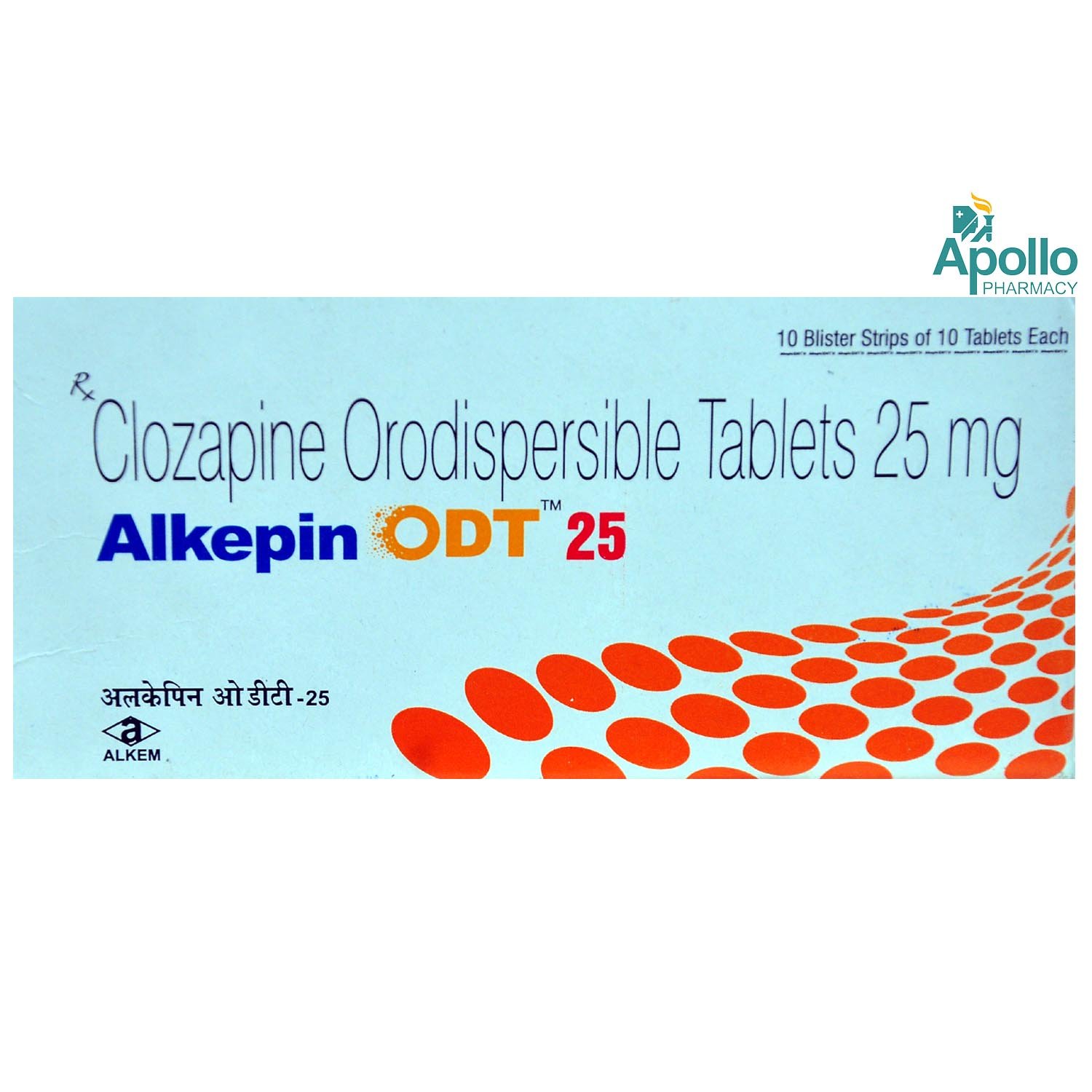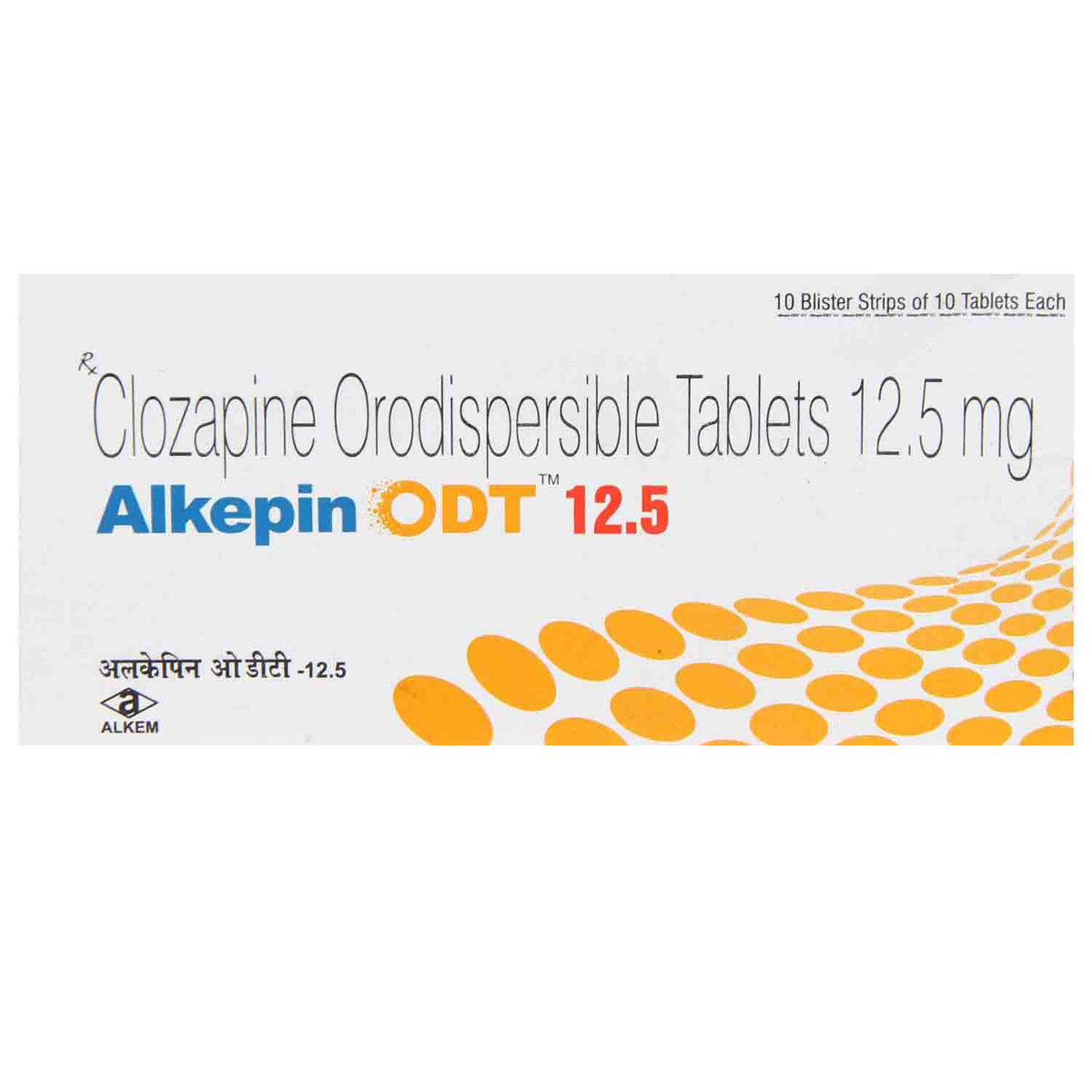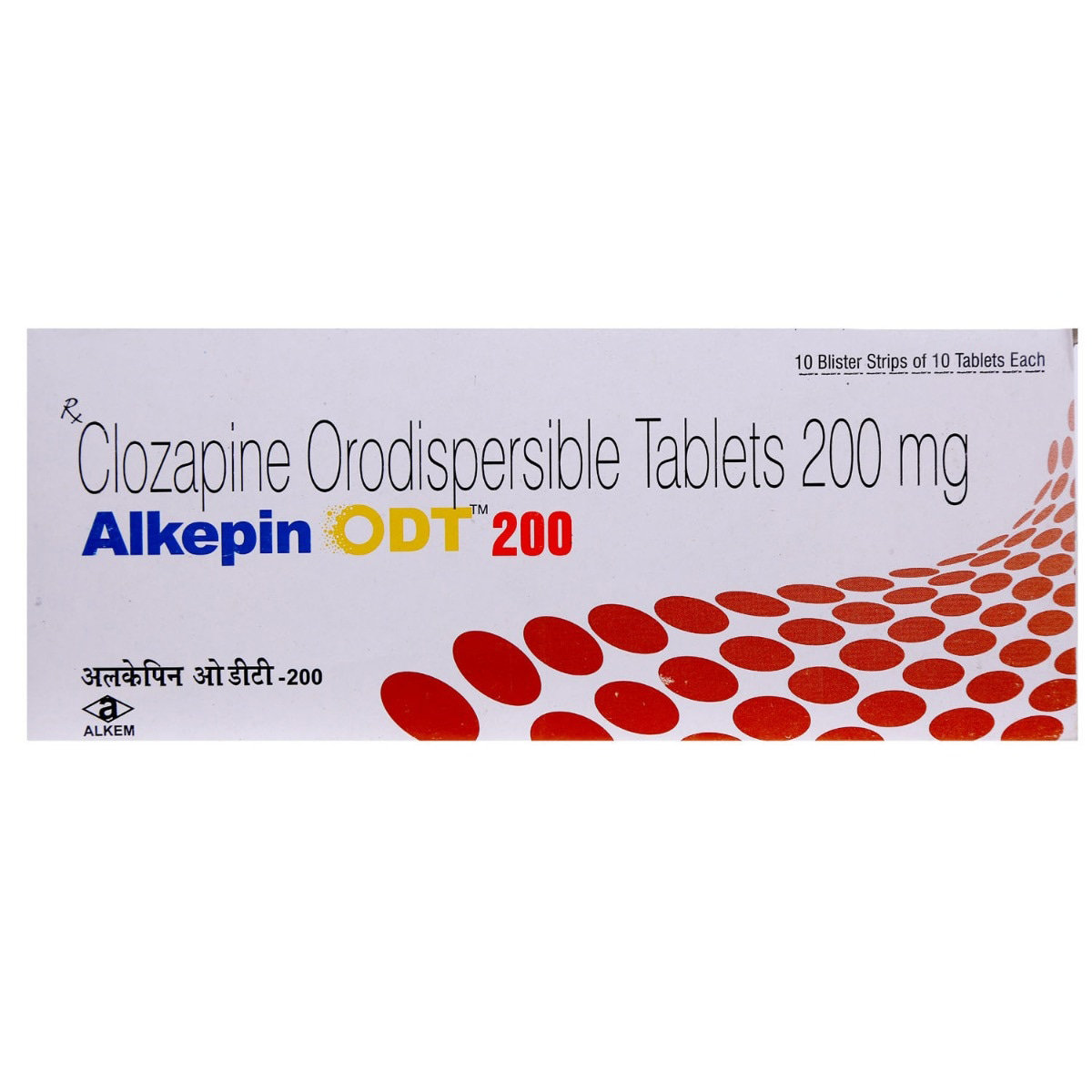Clozapine
About Clozapine
Clozapine belongs to a group of medicines called antipsychotics used to treat schizophrenia. Additionally, Clozapine is also used to reduce the risk of suicidal behaviour in patients with schizophrenia or other similar disorders. Schizophrenia is a medical condition in which the person may feel, hear or see things that are not there, believe things that are not true, or feel unusually suspicious or confused.
Clozapine contains ‘Clozapine’, which works by blocking the effects of chemical receptors in the brain, such as dopamine and serotonin. Thus, it helps in improving mood, behaviour and thoughts.
You are advised to take Clozapine for as long as your doctor has prescribed it for you, depending on your medical condition. In some cases, Clozapine may cause side effects such as tachycardia (fast heartbeat), dizziness, headache, tremor, sweating, dry mouth, nausea, constipation and visual disturbances. Most of these side effects do not require medical attention and will resolve gradually over time. However, you are advised to talk to your doctor if you experience these side effects persistently.
Please do not stop taking Clozapine suddenly, as it might cause withdrawal symptoms. Consult your doctor if you are pregnant. Do not take Clozapine if you are breastfeeding, as it may pass into breastmilk. Avoid driving as Clozapine may cause drowsiness and dizziness. Clozapine should not be given to children as safety and effectiveness have not been established. Avoid consuming alcohol with Clozapine as it could lead to increased drowsiness and dizziness. Keep your doctor informed about your health condition and medicines to rule out any side effects.
Uses of Clozapine
Medicinal Benefits
Clozapine belongs to a group of medicines called antipsychotics. Clozapine is used to treat schizophrenia and to reduce the risk of suicidal behaviour in patients with schizophrenia or other similar disorders. Clozapine works by blocking the effects of chemical receptors in the brain, such as dopamine and serotonin, thereby helping in improving mood, behaviour and thoughts. Clozapine is used to treat schizophrenia when other antipsychotic drugs are ineffective or have caused severe adverse effects. Clozapine is also used to treat psychotic disorders in patients with Parkinson’s disease when standard treatments have failed.
Directions for Use
Storage
Side Effects of Clozapine
- Tachycardia (fast heartbeat)
- Dizziness
- Headache
- Tremor
- Sweating
- Low blood pressure
- Dry mouth
- Nausea
- Constipation
- Visual disturbances
Drug Warnings
Do not take Clozapine if you are allergic to any of its contents if you have galactose intolerance, total lactase deficiency, glucose-galactose malabsorption, low number of white blood cells or if you are taking medicines that can cause low levels of white blood cells, bone marrow disorder, epilepsy, circulatory collapse (pronounced fall in blood pressure that can lead to unconsciousness), brain disorders, severe kidney disease, heart disease, liver disease with jaundice, liver failure or paralytic ileus (small intestine disorder). Inform your doctor if you have a low number of white blood cells or platelet count, orthostatic hypotension, epilepsy, enlarged prostate or difficulty urinating, glaucoma, severe constipation, diabetes, heart, liver or kidney problems. Consult your doctor if you are pregnant. Do not take Clozapine if you are breastfeeding, as it may pass into breastmilk.
Drug Interactions
Drug-Drug Interactions: Clozapine may interact with antipsychotic (aripiprazole, haloperidol, lurasidone, lithium, risperidone, quetiapine, olanzapine), anti-anxiety (lorazepam, alprazolam), anti-cholinergic (benztropine), anti-depressant (duloxetine, escitalopram, sertraline), anti-convulsant (divalproex sodium, clonazepam, lamotrigine), muscle relaxants (carisoprodol, cyclobenzaprine), antihistamines (cetirizine, diphenhydramine).
Drug-Food Interactions: Avoid consuming alcohol as it could lead to increased dizziness.
Drug-Disease Interactions: Inform your doctor if you have dementia (memory loss), CNS depression, liver disease, seizures, low blood pressure, diabetes, lipid alterations, weight gain, parkinsonism, acute alcohol intoxication, neuroleptic malignant syndrome (occurs due to reaction with antipsychotic drugs), tardive dyskinesia (repetitive, involuntary movements), QT interval prolongation, kidney impairment/disease, blood abnormalities, or hyperprolactinemia (higher levels of prolactin in the blood).
Drug-Drug Interactions Checker List:
Safety Advice

Alcohol
unsafeAvoid consumption of alcohol while taking Clozapine as it may cause increased drowsiness.

Pregnancy
cautionClozapine belongs to pregnancy category B. Please consult your doctor if you are pregnant before taking this medicine; your doctor will prescribe only if the benefits outweigh the risks.

Breast Feeding
unsafeClozapine is not recommended for use during breastfeeding.

Driving
unsafeClozapine causes tiredness, dizziness and vision problems. Do not drive or operate machinery if you experience these symptoms.

Liver
consult your doctorDose adjustment may be needed in patients with liver impairment. Please consult your doctor if you have liver problems or any concerns regarding this.

Kidney
consult your doctorDose adjustment may be needed in patients with kidney impairment. Please consult your doctor if you have kidney problems or any concerns regarding this.

Children
unsafeClozapine should not be given to children as safety and effectiveness have not been established.
Habit Forming
Diet & Lifestyle Advise
- Maintain a healthy diet and exercise regularly.
- Include fruits, vegetables, and fibre-rich food in your diet.
- Cut down on sugars, salts and saturated fats.
- Drink enough fluids to stay hydrated.
- Regularly attend therapy sessions.
- Perform meditation and yoga.
- Follow a regular sleep pattern.
- Avoid smoking and alcohol consumption.
- Learn about your condition, understand the risk factors and follow the doctor’s treatment plan.
Special Advise
- Regular monitoring of blood count is advised as Clozapine may cause agranulocytosis (low white blood cells).
- Clozapine may cause blood lipids (fats) alteration, which could lead to weight gain. Your doctor might monitor your weight and blood lipid levels regularly.
- If you have a liver disorder, regular liver function tests are recommended for as long as Clozapine has been prescribed.
- Clozapine might cause thrombosis (blood clotting in the vein). If you are due to have any surgery, inform your doctor that you are taking Clozapine.
- Clozapine might affect how your body controls temperature; therefore, be cautious while exercising, taking hot baths or sauna.
Patients Concern
Disease/Condition Glossary
Schizophrenia: It is a severe mental illness in which the person may see, hear or feel things that are not there, believe things that are not true, or feel unusually suspicious or confused. Schizophrenia is a long-term disease that affects brain functioning. People with schizophrenia may seem like they have lost touch with reality, which might cause significant distress for the individual, their friends and family. The exact cause is unknown; however, conditions like genetics, environment, brain structure and function could be the risk factors. Symptoms include hallucinations, delusions, thought disorders, movement disorders, disorganised thinking, loss of interest, lack of emotions, etc.
FAQs
Clozapine works by blocking the effects of chemical receptors in the brain, such as dopamine and serotonin, thereby improving mood, behaviour and thoughts.
Do not discontinue Clozapine without consulting your doctor, as it could cause withdrawal symptoms. To treat your condition effectually, continue taking Clozapine for as long as prescribed. Do not be reluctant to speak with your doctor if you experience any difficulty while taking Clozapine.
Clozapine may cause agranulocytosis (low levels of white blood cells), making you more prone to infections. Consult your doctor immediately if you experience flu-like symptoms, sore throat or fever.
Dry mouth could be a side-effect of Clozapine. Limiting caffeine intake, avoiding smoking and mouthwashes containing alcohol, drinking water regularly and chewing sugar-free gum/candy might stimulate saliva and prevent drying of the mouth.
Orthostatic hypotension could be a side-effect of Clozapine. Orthostatic hypotension is a sudden lowering in blood pressure leading to dizziness on standing. If you experience this, do not try to stand up suddenly or start walking; instead, lie down and get up slowly only when you feel better.
Clozapine may cause tachycardia (fast heartbeat). Talk to your doctor if you experience irregular or fast heartbeat even at rest, chest pain, unexplained tiredness or breathing problems.
Take the missed dose as soon as you remember. However, if it is almost time for the next dose, skip the missed dose and take your regular dose. Please don't take a double dose to make up for a missed one.








